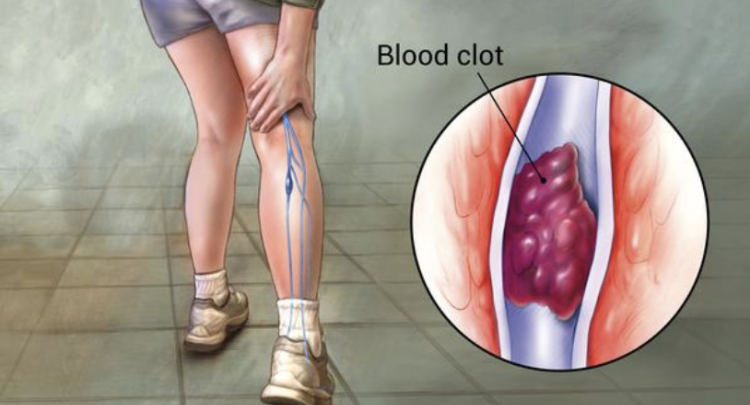You can recognise a blood clot by these symptoms

A blood clot, also known as an embolism, is a gel-like mass that blocks an artery or vein. We need blood clots to stop our bleeding if we’ve got a wound, but they can also form when it’s not necessary and then they can be pretty dangerous. The most common type of blood clot is thromboembolism. This is an obstruction of a blood vessel by a blood clot that has become dislodged from another spot in the circulation.
Blood clots or thromboembolism kill thousands of people in England each year. It’s important to be able to notice the signals at an early time.
1. Heart palpitations
Are you experiencing heart palpitations on a regular basis? This can be a symptom of an embolism. A blood clot in your lungs can cause the supply of oxygen to your lungs to be limited or even blocked. The heart needs to compensate for this, which is why it starts to beat faster, harder and more irregularly.
2. Pain in chest
People who have experienced lung embolisms before often say it’s similar to having a heart attack. This is because the pain of a heart attack is comparable to that of a lung embolism. The difference is that the pain of a lung embolism feels as if you’re being stabbed and the pain gets worse when you breathe deeply.
3. Shortness of breath
An embolism in the lungs can also cause you to have trouble breathing. Like we said above, this is caused the blood clot messing with the supply of oxygen. This symptom can get so bad that you might feel like you’re about to faint.
4. Coughing
Coughing regularly is often associated with having a cold, the flu, pneumonia or laryngitis. But do you have a dry cough that seems to come out of nowhere? Then it might be your body’s way of warning you for a lung embolism. If you’re coughing up slime and/or blood, it’s definitely time to call the doctor.
Go to the next page to read about the rest of the symptoms.






